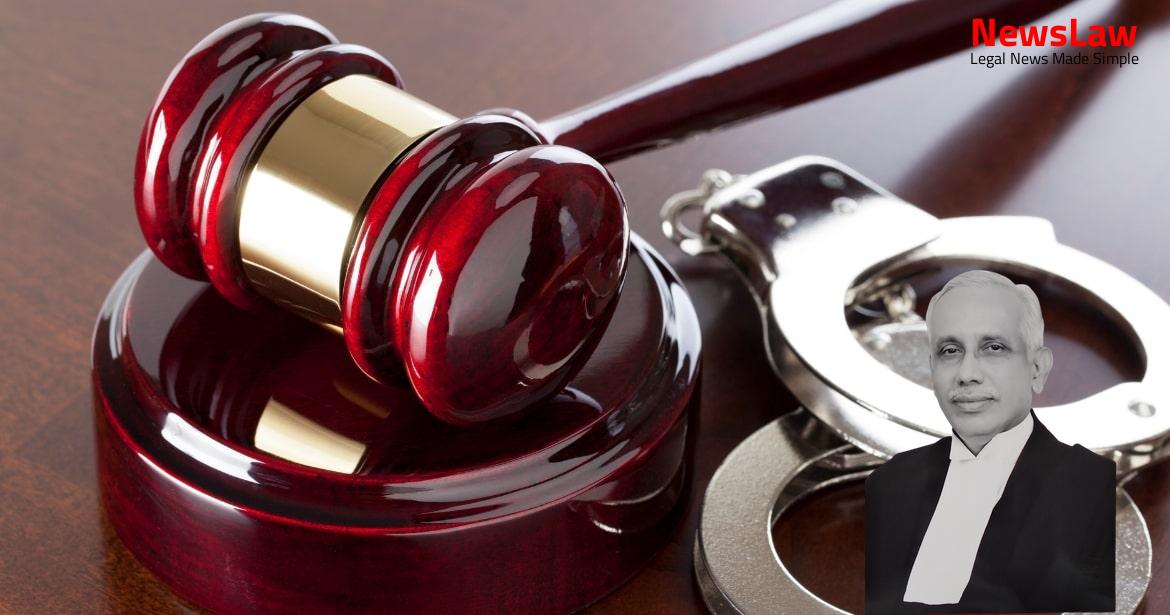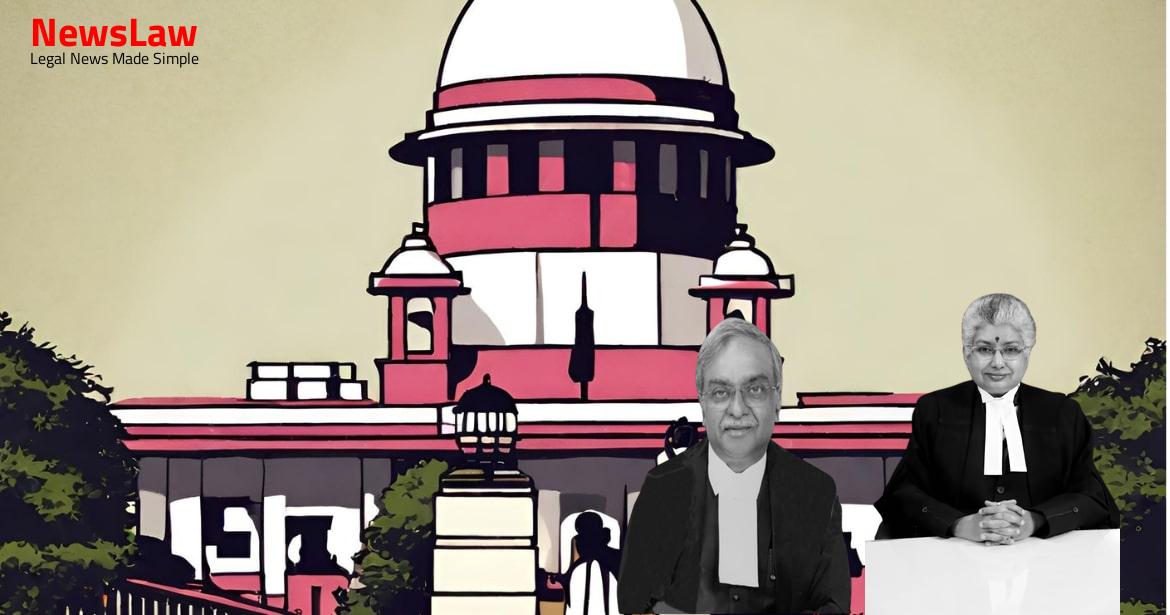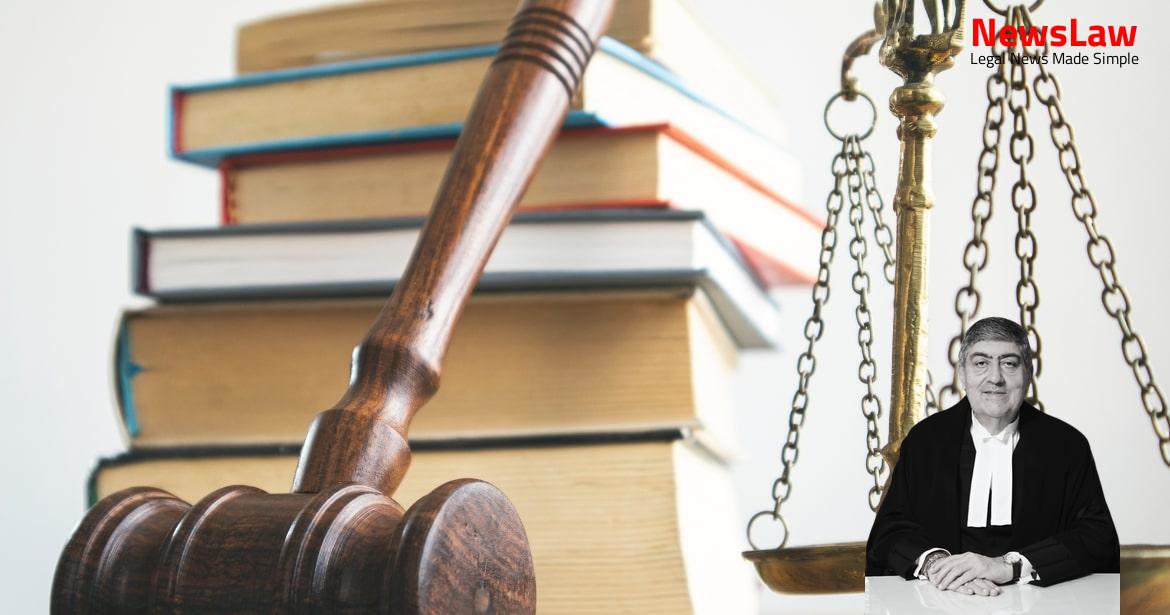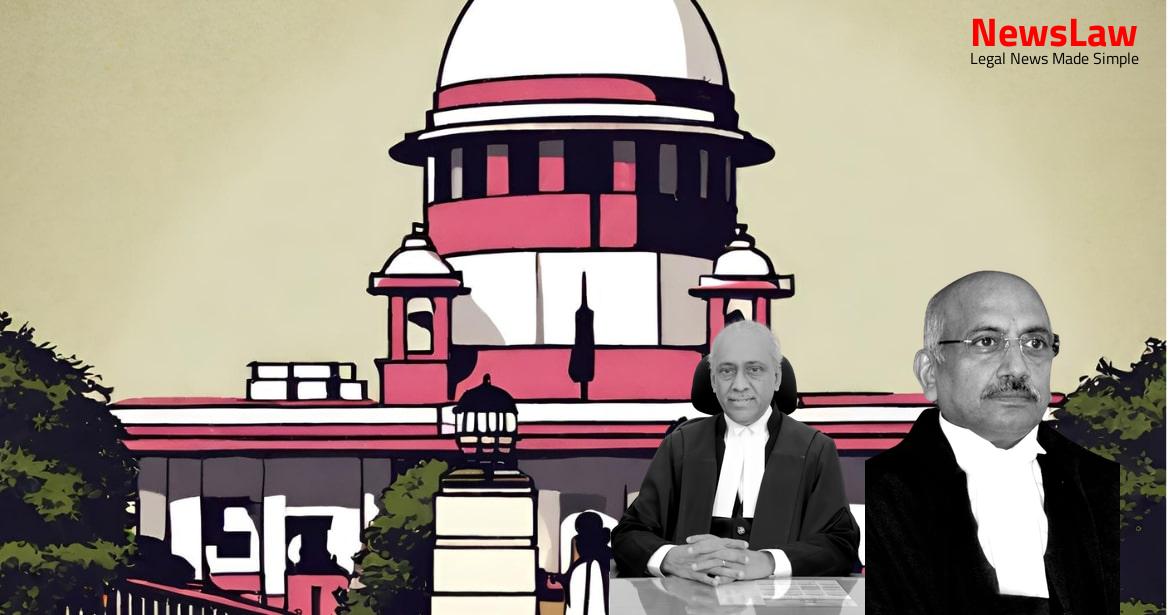Explore the detailed legal examination of qualifications for promotion in the High Court, focusing on the powers of the Chief Justice and the adherence to rules and regulations. The case delves into the nuanced application of criteria for promotion and the implications on staff appointments within the High Court’s framework. Stay tuned for a deep dive into the legal intricacies surrounding promotions in the judiciary.
Facts
- Writ petition allowed on 22.04.2010 setting aside the Order of promotion dated 24.11.2008 of the contesting respondents.
- Appeals in LPA Nos. 45 and 84 of 2010 dismissed on 30.08.2011.
- Contesting respondents filed writ petitions in Writ Petition Nos. 489 of 2010, 2681 of 2011, 2344 of 2011, and 501 of 2012.
- Appellants before the court against the said Order.
- After an interim stay granted on 13.05.2016, the services of an undergraduate candidate were regularized who received out of turn promotions as Head Assistants.
- Appellants directly recruited as Junior Assistants in 1998 and promoted as Senior Assistants in 2001, 2005, 2006, and 2008.
- Notice ordered by the Court on 13.05.2016 in special leave petitions.
- Office Order No. 579 dated 24.10.2008 by the Chief Justice of Jammu & Kashmir contained a Note.
- Benefit promotion short-lived due to the Office Order dated 24.10.2008 of the Chief Justice leading to promotions for all persons like the appellants.
- An interim stay was granted on the Order of the Division Bench of the High Court.
- Chief Justice issued Office Order No.579 dated 24.10.2008, regarding qualifications and recruitment mode.
- A learned Judge of the High Court quashed the Chief Justice’s Order dated 24.10.2008 in a common Order dated 30.08.2013.
Also Read: Legal Analysis on Withdrawal from Land Acquisition
Arguments
- The appellants are challenging a common order passed in a batch of Letters Patent Appeals confirming the Judgment of the learned Single Judge.
- The Judgment quashed an administrative Order of the Chief Justice prescribing certain qualifications for promotion to the post of Head Assistant along with a power of relaxation.
- Appellants were fully qualified as per the rules at the time of appointment.
- The appellants have come up with Civil Appeals against the order.
- The Counsel for the appellants, High Court of Jammu & Kashmir, and contesting respondents have been heard.
- Rule 18 of the CCA Rules does not stipulate the qualifications required for appointment to any particular post in the High Court.
- The Rules themselves do not provide details on the qualifications needed for specific posts in the High Court.
Also Read: Legal Analysis in Petition Transfer Case
Analysis
- Appointments of officers and servants of the High Court shall be made by the Chief Justice of the Court or as directed by the Chief Justice.
- The Governor may require consultation with the State Public Service Commission for certain appointments as specified in the rule.
- Conditions of service for officers and servants of the High Court are to be prescribed by rules made by the High Court with the approval of the Governor.
- Qualifications and recruitment mode for the staff of the High Court are determined by the High Court with the approval of the Governor.
- Specific rules for appointments, promotions, qualifications, and recruitment methods for various staff positions like Assistant, Senior Assistant, and Junior Assistant are laid down.
- The Chief Justice has the authority to relax rules in individual cases if strict application would cause hardship or confer undue benefit.
- The Chief Justice’s power to prescribe qualifications for promotion was derived from Rule 6 of the Jammu & Kashmir High Court Staff Rules.
- The Rules were issued under Section 108(2) of the Jammu & Kashmir Constitution with approval from the Governor.
- Rule 5 of the CCA Rules, relied upon by contesting respondents, was deemed inapplicable to the case.
- The Chief Justice’s order restricted relaxation of qualifications to pre-1987 appointees and was not arbitrary.
- The prescription of graduation as a minimum qualification in 1987 was not a sudden decision by the Chief Justice in 2008.
- The Chief Justice’s power to relax qualifications in exceptional cases was well within the mandate.
- The controversy centered around the Chief Justice’s order requiring graduation for promotion to Head Assistant post.
- Challenges were raised on the order affecting non-graduates employed before 1987, creating a distinction within a homogenous class.
- The High Court’s misinterpretations of the Chief Justice’s powers and retrospective impact were refuted.
- The dispute led to multiple litigations and appeals, with considerations on seniority and possession of qualifications at appointment.
- The order did not nullify promotions up to its issuance date and pertained specifically to future promotions post-2008.
- In the case of State of Mysore vs. P. Narasinga Rao, it was established that Article 16(1) allows for reasonable classification of employees or tests for their selection.
- A Constitution Bench later considered the classification of employees based on educational qualifications for promotion, even if they perform similar duties.
- The case of State of Jammu & Kashmir vs Triloki Nath Khosa reinforced the importance of maintaining efficiency in service while evaluating the validity of classification.
- The Court has ruled that Article 14 and Article 16 do not prohibit the use of selective tests or qualifications setting by the Government.
- In the case of T.R. Kothandaraman vs. Tamil Nadu Water Supply and Drainage Board, it was concluded that higher educational qualifications can be a valid basis for classification, including restricting promotions, as long as it does not significantly harm promotion prospects.
- Seniority of contesting respondents determined by date of acquiring qualification in promoted posts, not date of promotion.
- Prescription of graduation as qualification for promotion to Head Assistant upheld as not violating Articles 14 and 16.
- Appeals allowed, High Court judgment set aside.
- Contesting respondents need not be reverted due to their long service and acquisition of necessary qualifications.
- Seniority of appellants and contesting respondents based on dates of qualification acquisition and length of service combined.
Also Read: Interpretation of Section 56(2) of Electricity Act
Decision
- No further orders necessary for Contempt Petitions in view of Orders passed in the appeals
- No costs awarded
- Contempt Petitions closed
Case Title: ASHOK KUMAR AND ORS ETC.ETC. Vs. THE STATE OF JAMMU AND KASHMIR (2021 INSC 24)
Case Number: C.A. No.-005189-005192 / 2017



